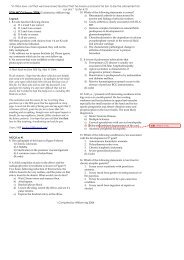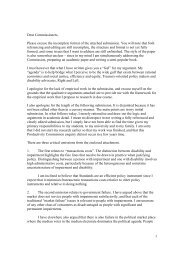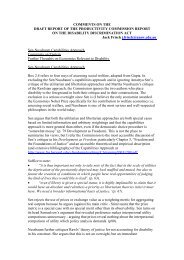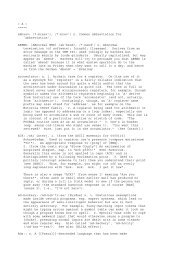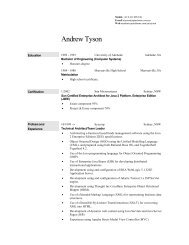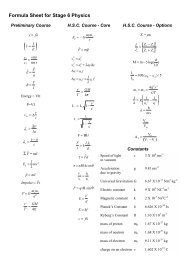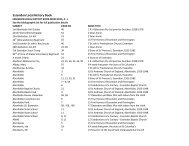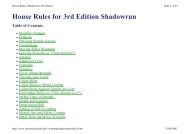Cornish Language & Names in Family Research
Cornish Language & Names in Family Research
Cornish Language & Names in Family Research
- No tags were found...
You also want an ePaper? Increase the reach of your titles
YUMPU automatically turns print PDFs into web optimized ePapers that Google loves.
Summary of wordsusedaval -- applebara -- breaddewbries -- marriedcoupleglyb -- wetgwithyas-kres --policemanhwi -- you (plural)na(g) -- "not" (seegrammatical)ni -- weon -- we areos (-ta) -- you are(s<strong>in</strong>gular)owgh -- you are(plural)pur -- veryser-prenn -- carpenterteylu -- familytiek -- farmeryeyn -- coldGrammatical po<strong>in</strong>ts• In the sense of answer<strong>in</strong>g questions, thereare no words for "Yes" and "No" <strong>in</strong><strong>Cornish</strong>. The usual practice is to repeatthe verb used <strong>in</strong> the question (<strong>in</strong> therelevant tense); so that the answer to"Osta lowen?" ("Are you happy?") wouldbe either "Ov" ("I am") or "Nag ov" ("Iam not").• The verb for "you are" is really "os". The"-ta" is a suffix which emphasises the"you", and is normally used <strong>in</strong> the "areyou ...?" type of question.• Plac<strong>in</strong>g a verb at the beg<strong>in</strong>n<strong>in</strong>g of asentence turns that sentence <strong>in</strong>to aquestion; e.g. "osta tiek?" ("are you afarmer?"), but "tiek os" ("you are afarmer").• A verb is negated by preced<strong>in</strong>g it with"na". "Na" is a verbal particle - a wordwhich has no real mean<strong>in</strong>g on its own,and is only used before a verb. Note that"na" becomes "nag" if it precedes an<strong>in</strong>itial vowel; e.g. "na vydh" ("he will notbe"), but "nag os" ("you are not").



